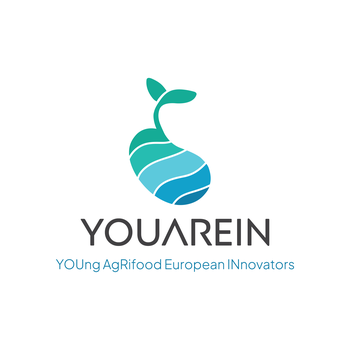YouAreIn
YOUng AgRifood European INnovators

Coordinator: Warsaw University of Life Science (Poland)
Scientific Officer: Pietro Rocculi
Duration: 01/11/2022 - 31/10/2024
Research group: Pietro Rocculi, Marco Dalla Rosa, Santina Romani, Urszula Tylewicz, Silvia Tappi, Federico Drudi, Alessia Maria Schouten, Ana Cristina De Aguiar Saldanha Pinheiro, Gebremedhin Gebremariam Gebremical, Junior Bernardo Molina Hernandez.
Current food systems rely on mass production methods that should be designed to provide people with safe food products having a specific nutritional value. At the same time, there is an increase in world population, as well as malnutrition and hunger occurring in some regions of the world. In addition, food production puts a strain on environmental systems, and some studies suggest that food production is one of the main sectors contributing to climate change, biodiversity loss and the depletion of freshwater resources. Considering health issues and environ-mental degradation created by today's interconnected global food systems, there are increasing efforts around the world to make them more sustainable.
The project aims to develop multifunctional training in an attractive form regarding agri-food innovations with a theoretical and practical approach. In addition, the project aims to stimulate university students and graduates to develop business ideas to make the agri-food system more sustainable.
The course will involve developing classes on innovative strategies for producing economically, environmentally, and socially sustainable food products. The topics covered in the course will concern new and sustainable food processing technologies, such as pulsed electric field (PEF), high hydrostatic pressures (HPP), ultrasound (US), cold plasma (CAP), ultraviolet (UV) light, etc. Additionally, issues related to new technologies implemented into the in-dustry, such as 3D printing or sustainable packaging systems will be discussed, along with sustainable primary pro-duction systems, e.g. vertical farming. Furthermore, the course will also cover new food ingredients used in food production, i.e. the use of alternative sources of proteins, e.g. edible insects, algae and microalgae, or laboratory-
grown meat. The topics discussed in the course will make participants aware of the need to introduce innovations in the agri-food system by creating business ideas that can transform the research into industrial applications. Once course participants become aware of this, they will be able to raise a new generation of entrepreneurs interested in investing in sustainable development as a basic principle of their business, rather than a forced practice.
The consortium is composed by Warsaw University of Life Science (Poland), DISTAL - UNIBO (Italy), Food Hub (Italy), Universidade Catolica Portuguesa (Portugal) and EUFIC (Belgium).